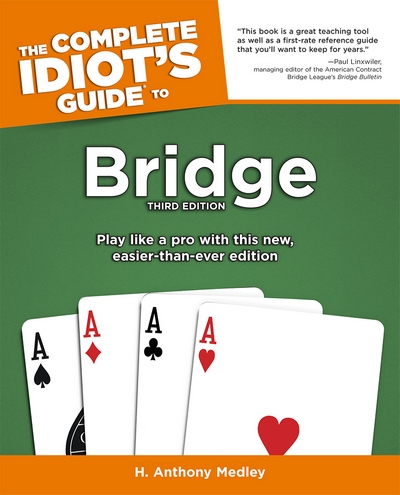| The first and second editions of Complete Idiot's Guide to Bridge by H. Anthony Medley comprised the fastest selling beginning bridge book, going through more than 10 printings. This updated Third Edition includes a detailed Guide to Bids and Responses, along with the most detailed, 12-page Glossary ever published, as well as examples to make learning the game even easier. Click book to order. Available in all bookstores and on Kindle. | ||
|
Final Portrait (2/10) by Tony Medley Runtime 90 minutes R The only thing I can figure is that writer-director Stanley Tucci wanted to capture the tedium involved in sitting for a portrait for a famous artist. So what he created was a movie as tedious to sit through as it was for James Lord to sit for a painting in 1964 for the artist Alberto Giacometti. This painting eventually sold for $20 million. Tucci adapted this from James Lord’s memoir “A Giacometti Portrait.” Why he thought this would be cinematic is anybody’s guess. In essence, all we see is Giacometti (Geoffrey Rush) painting and Lord (Armie Hammer) sitting. I, frankly, thought this was going to be a dialogue between Giacometti and Lord. It is nothing of the sort Giacometti is presented as a goofball who says ridiculous things to justify his constantly destroying the painting and starting over again, like, “that’s the terrible thing: the more one works on a picture, the more impossible it becomes to finish it,” and “It’s gone too far, and at the same time not far enough.” Maybe to Tucci and Giacometti this sounds profound but to most people is just sheer, utter nonsense. Giacometti is pictured as a selfish, unfaithful egoist. He openly cheats on his wife, Annette (Sylvie Testud) to consort with his prostitute Caroline (Clémence Poésy), and Annette, in turn, cheats on him. One comment I can make is that Caroline made the right choice in becoming a prostitute because she is one of the most annoying characters one could hope to see. If she was like this in real life the only way she was going to get any romance or sex would be to offer her sexual favors with the promise that she wouldn’t hang around for long afterwards. I tend to think, however, that the real Caroline was probably a more enjoyable companion than Tucci has made her here. Exacerbating all this is the lackluster cinematography (Danny Cohen) that is dull and bland, despite the Parisian location. While this might capture Giacometti’s goofy personality, it’s an extraordinarily boring tale.
|
||
